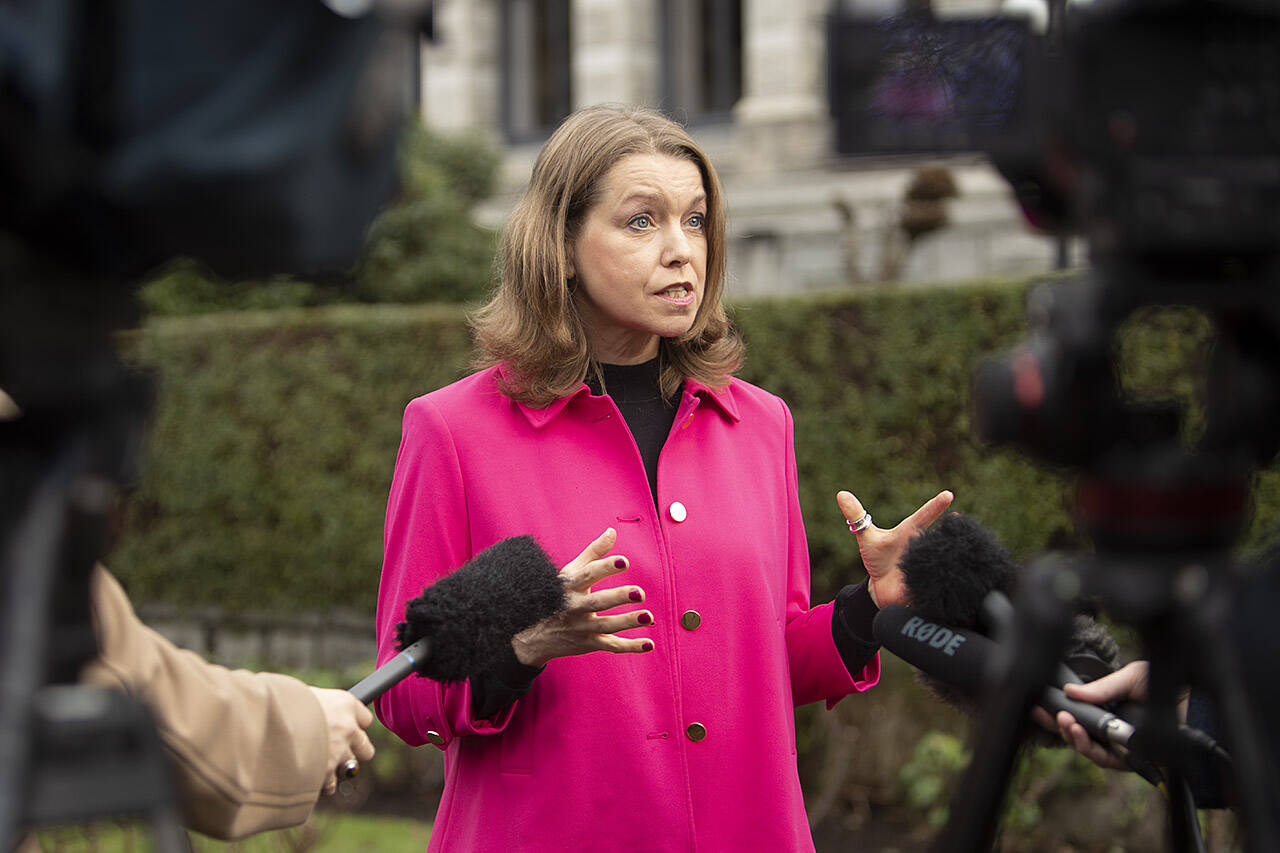Editors note: This article has been corrected to state one of the first hubs will be rolled out in North West B.C. servicing communities near Prince Rupert. A previous version had the hub mistakenly listed as being in the Northwest Okanagan.
The province has announced a new care system for disabled and neurodiverse children and youth to seek supports with or without a diagnosis.
At a news conference on Wednesday (Oct. 27), Minister of Children and Family Development Mitzi Dean said the new provincial system will ensure better access to care.
“The existing patchwork of programs has left too many children and youth with support needs behind. That’s why we’re putting children and youth at the centre of our new system and making it easier for families to get the high-quality services they need, regardless of where they live in the province.”
Under the current system, children and their families must wait for a diagnosis before accessing expert medical care and provincial supports. The new system involves community hubs where families can access care a range of professionals and children will be matched case managers to look after their complex needs.
The first two hubs — a rural location in the northwest that will service communities near Prince Rupert, Hazelton and Dease Lake and an urban hub in the central Okanagan — will open in 2023. Hubs will open province-wide in 2024 and will enable families to receive care close to home.
Supports will be available for youth as old as 19 and service will be delivered on an individualized “needs-based” model.
Mixed feelings and unanswered questions surround new system
Families receiving individualized autism funding and school-age extended therapy benefits will have the option to continue their current funding or access services through the new hub system until March 2025, at which time all families will receive services through community hubs.
RELATED: B.C. kids with autism and their caregivers lack support during pandemic: survey
Dean said that children with autism and their families will receive the same level of support through the new hub system. She also promised the province would communicate any changes in advance to make sure families are supported through the transition.
But AutismBC president Kaye Banez said the government failed to communicate details of the new program with her organization in advance of the public announcement.
“We didn’t know any details about it. We tried to engage them to confirm it would be a hub model. They didn’t confirm, but they didn’t deny either. We asked for an ongoing dialogue before the release of this big news that impacts our community but that didn’t happen.”
“We asked for even just a 48-hour notice… We were asking to be a part of the consultation for these changes because it’s going to be a big change.”
Banez said she still has plenty of questions about how the new hub system will work and remains concerned about the lack of communication from the government.
The main concern is that eliminating individualized funding for autism would leave some families scrambling to access care through the hub system.
“Families have found amazing specialized support for their children and therapists they have built relationships with over so many years — children are thriving and they’re able to really customize based on the child’s needs. Taking away the individualized funding for families where this is working and adequately addressing their needs is really a loss.”
RELATED: Change approach to diagnosing autism to ease wait times, stress: B.C. doctor
Under the hub system, care will be “needs-based”. Banez said the needs-based model raises questions around who determines what those needs are and expressed concerns about the province having adequate levels of service providers.
“How is this hub model going to adequately and in a timely manner, provide services? How are the needs determined and who determines that? What is the limit of services they can provide? And what happens if the child needs more?”
Jennifer Charlesworth, B.C. representative for children and youth, applauded the model’s merits but said she has mixed feelings about the timeframe of the services.
“In the hub model, they want to have a more coordinated approach to respite, so I’m curious if they could do that now to help families in this transition time that would enable them to access respite care that helps stabilize families.”
Charlesworth also called for expanding care for thousands of children on the autism spectrum to get increased services as the hub system is rolled out.
“It’s another stepping stone. Experiment with the needs-based approach, get the functional needs assessments done more quickly and start to provide services to those children who have never received services so they can practice as we move toward the hubs. There are thousands of kids who get nothing right now.”
RELATED: Fetal alcohol spectrum disorder gets ‘meagre’ support compared to other conditions: B.C. report
Some 80 per cent of children receiving provincial supports currently are on the autism spectrum. Charlesworth said the government will need to ensure the transition is smooth and communication is strong to ensure access to care is improved for everyone.
“I’m optimistic about the long-range plan. I think they’re moving in the right direction. What I’m anxious about is what’s happening for the families that are struggling right now, because that’s is a long time to wait for a change.”
@SchislerCole
cole.schisler@bpdigital.ca
Like us on Facebook and follow us on Twitter.
Want to support local journalism? Make a donation here.

